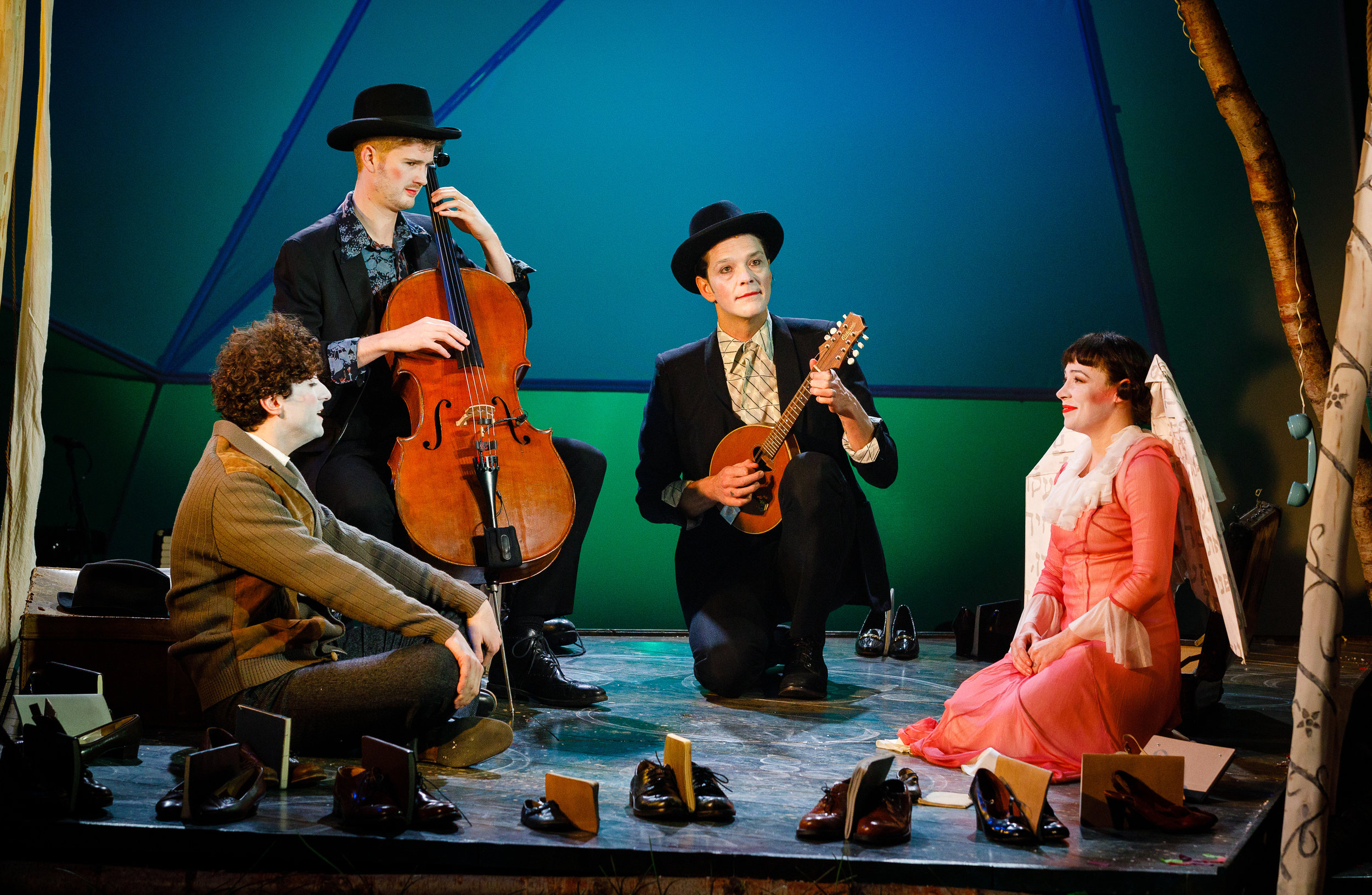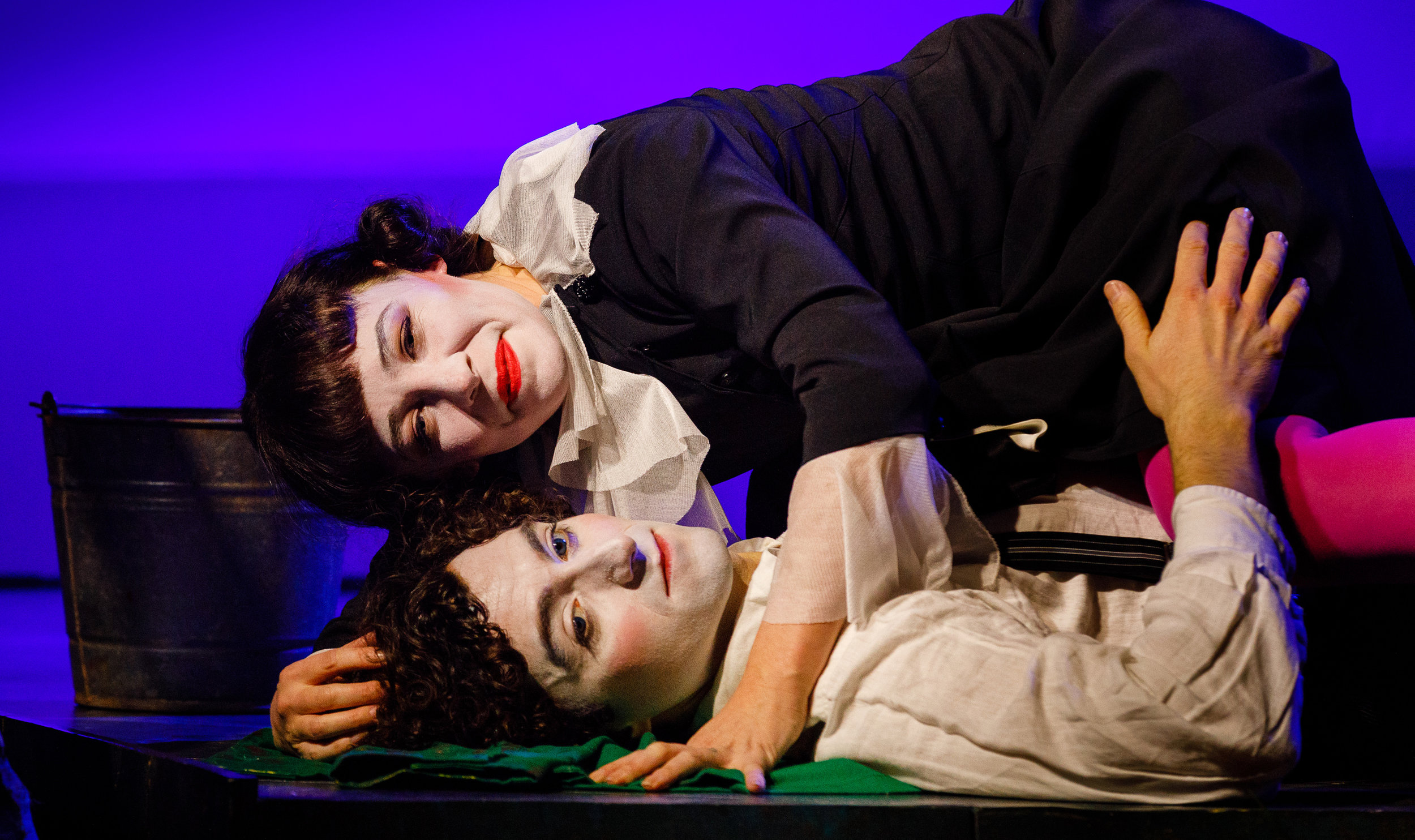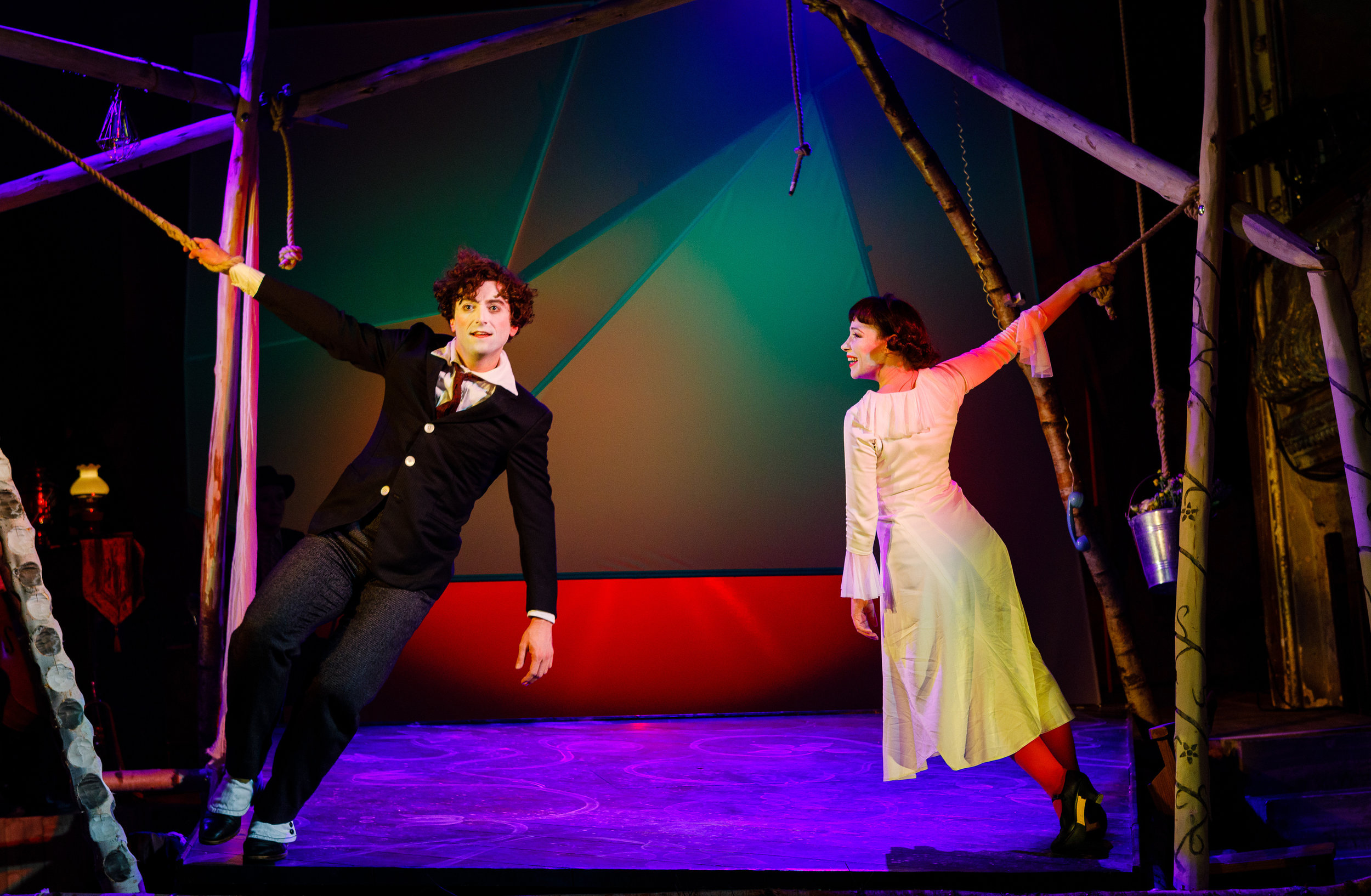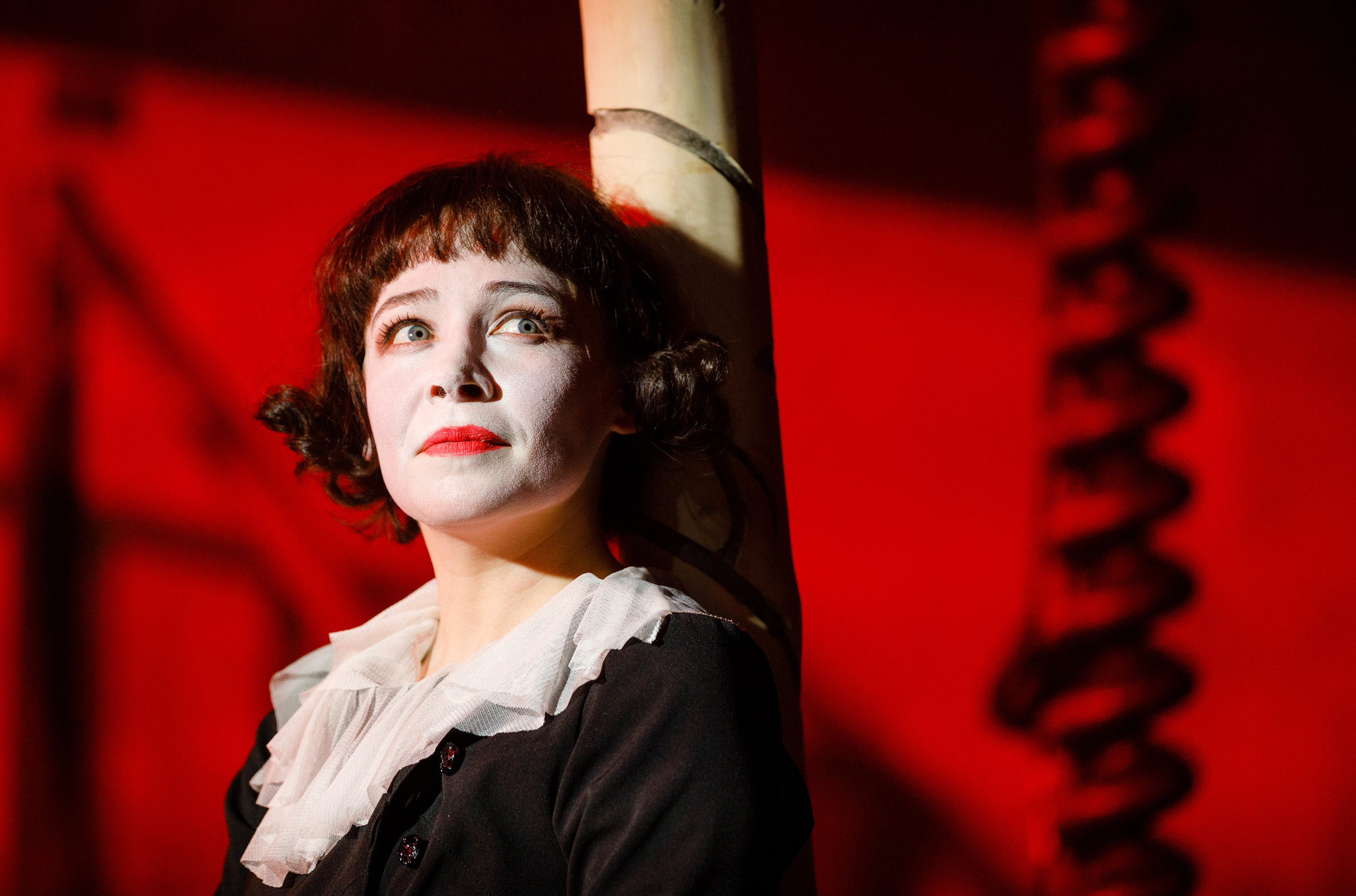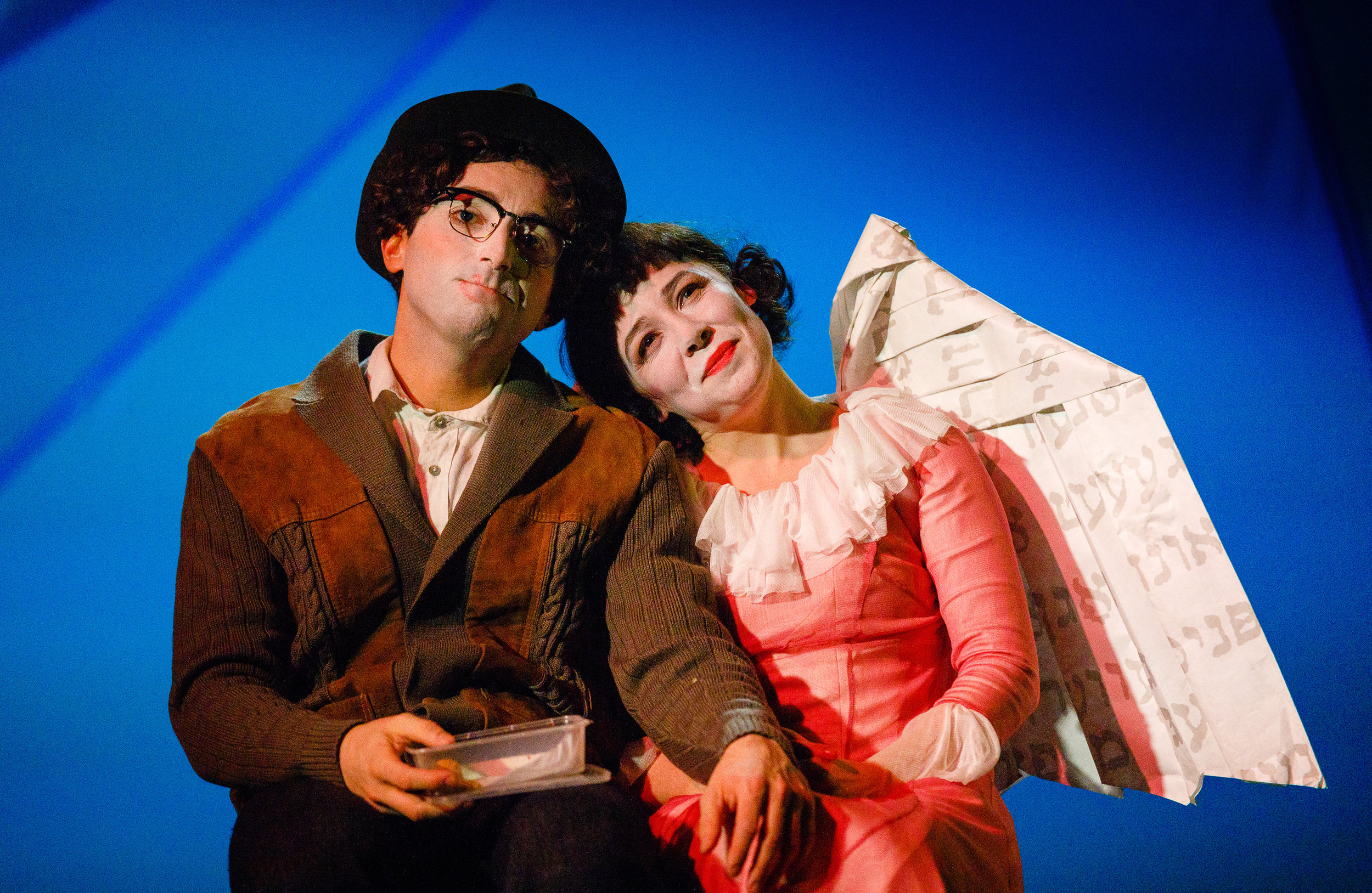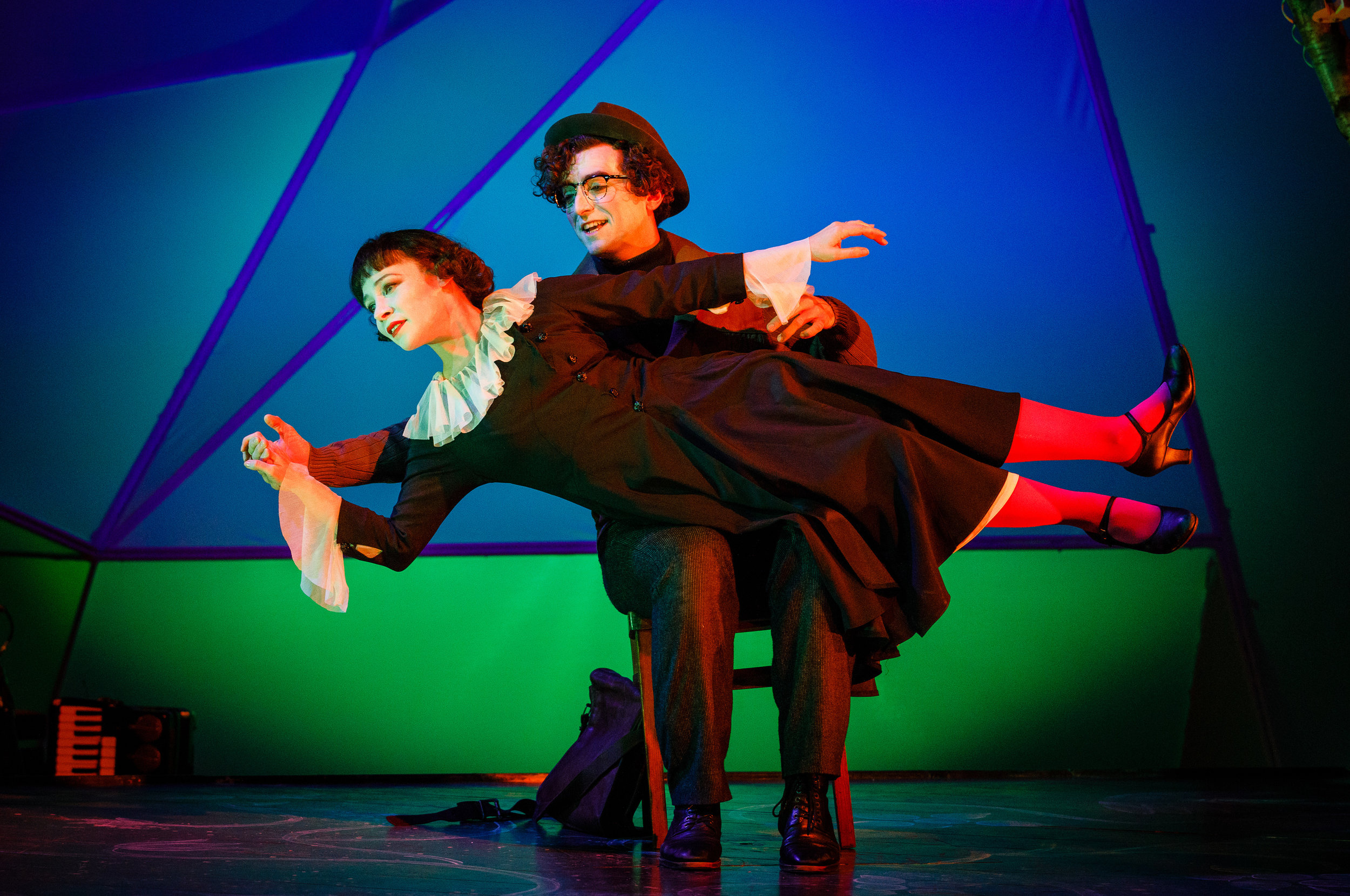The Flying Lovers of Vitebsk: a colourful explosion of theatre
A staged biography of Marc Chagall, The Flying Lovers of Vitebsk is the story of an iconic artist and the woman both blessed and cursed to be his muse.
Portrayed by just two actors (accompanied by two musicians, by way of occasional ensemble) this latest production from Kneehigh and Bristol Old Vic incorporates all off the physicality, innovation and visual absurdity that the story of a creative mind necessitates.
The simple wooden scaffold set enables the action to travel across Europe and to transverse war and revolution. Seemingly miscellaneous props hang from the beams, to allow for uninterrupted storytelling. The production is styled in a very Chagall-esque fashion, oozing colour and bursting through constraints: a toy train and paper aeroplanes deliver messages; pregnancy is poetically portrayed with an simple balloon; and additional characters are conjured through props and a painting adapted for puppetry. Novel narrative solutions, from director Emma Rice, allow for 90 minutes of energetic and engaging theatre.
The two-strong cast tell their story through song, monologue and movement. Marc Antolin, in the role of Marc Chagall, brings a distinct sense of period to the piece, through his slapstick, stylised characterisation. Alongside him, his wife Bella, played by Daisy Maywood, gives a more measured, honest performance. A talents writer herself, the artistic pair balance each other and create beautiful shapes through their mutual physicality. A particular highlight comes in the moving scene where Bella brings Marc back to life and back to painting; she sings in Yiddish, he in English, and their almost frantic motions build to an emotional climax.
Bolstering this, the onstage musicians, Ian Ross and James Gow, provide intimate atmospheric accompaniment throughout. Beyond their instrumental prowess, their onstage presence as ensemble and stage management offers an overlap into a distinct meta-theatrical awareness of the unfolding art form. This production is as much about an artist as art itself.
Having said that, the artistic focus sometimes detracts from the performative chemistry and the combination of quite so many theatrical techniques can, at times, feel a little disjointed. Each scene is a perfectly crafted, artistic delight; yet, connecting these moments with the refrain of lyric-less a cappella singing seems uncomfortably attached to certain scenes of dialogue. That is not to say that any element- the music, movement, monologue, dialogue, props or design- ought to be removed or limited, as they all add certain bursts of colour. However, I found that the story and the chemistry struggle to gain momentum during quite so many jarring shifts.
Presenting both the glamour and the infuriating selfishness that accompany a creative genius, we, as audience, are torn between willing Marc to succeed and wanting to slap him around the face. This combination of reactions is a testament to the pair of performances that ultimately grasp and direct our empathy. The players take a poetically crafted script, punctuated with some poignant moments, strung together with perhaps slightly too much soliloquising, and they maintain a light-hearted air overall.
Incorporating art, biography, history, politics, domestic drama and abstract theatre, The Flying Lovers of Vitebsk tells a detailed story and is bound to make you smile. After all, as Chagall seemed to purport (and as those familiar with the film Notting Hill will know): "Happiness isn't happiness without a violin-playing goat."
The Flying Lovers of Vitebsk plays at HOME, Manchester until 7th April, before continuing on tour.
Photography by Steve Tanner

